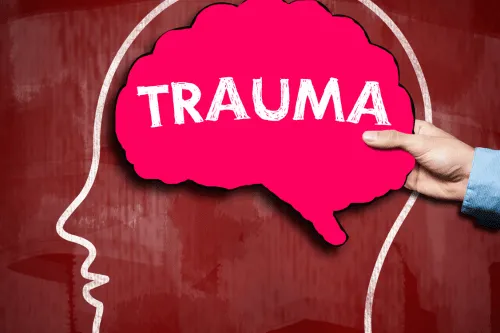
The acute physiological response to alcohol cessation, commonly known as alcohol detox, profoundly affects both the body and brain as the system clears the substance. When an individual discontinues prolonged alcohol use, the central nervous system reacts strongly due to its adaptation to alcohol’s depressant effects. At Sullivan Recovery in Mission Viejo, patients receive comprehensive medical support to manage these symptoms safely, mitigate severe complications, and prevent relapse.
During detoxification, the nervous system undergoes a critical adjustment period, losing the steady flow of alcohol that once suppressed neurotransmitter activity. This rapid shift can lead to neuronal hyperexcitability, manifesting as anxiety, irritability, and mood swings as GABA (gamma-aminobutyric acid) and glutamate receptor systems attempt to regain homeostatic balance. These profound neurochemical shifts often produce significant discomfort and fatigue, making sustained abstinence challenging without professional medical intervention.
At Sullivan Recovery, a dedicated team of health professionals provides continuous monitoring of patients’ vital signs, including blood pressure, heart rate, and hydration levels. This vigilant oversight is crucial to prevent serious complications such as dehydration, severe electrolyte imbalance, or hypertensive crises. Given that alcohol withdrawal impacts virtually every bodily system—from the gastrointestinal tract to the intricate neural networks of the brain—supervision by a qualified physician is paramount to ensuring a stable, safe, and medically sound detox process.

The typical signs and symptoms of alcohol detoxification can be broadly categorized into physical, neurological, and psychological manifestations. Physical symptoms often include nausea, vomiting, diarrhea, palpitations, generalized pain, and insomnia. As alcohol is metabolized and eliminated, the liver and gastrointestinal tract work intensely to process toxins, frequently leading to temporary electrolyte disturbances and hemodynamic changes. Neurological and psychological effects—such as confusion, profound restlessness, or even visual and auditory hallucinations—can feel overwhelming and disorienting without targeted therapeutic and pharmacological support.
For many individuals, the side effects of alcohol detoxification extend beyond the physical to encompass significant emotional distress. The brain must recalibrate to function without the chronic depressant effects of alcohol, which can acutely heighten anxiety and trigger intense cravings. These detox symptoms of alcohol can range from mild discomfort to life-threatening medical emergencies, with severity directly correlated to the duration and intensity of an individual’s alcohol dependence.
Delirium Tremens (DTs) represents the most severe and potentially fatal manifestation of alcohol withdrawal syndrome, with an untreated mortality rate historically reported as high as 15-20%. This critical condition can precipitate generalized tonic-clonic seizures, profound confusion, rapid tachycardia, and vivid hallucinations. DTs typically develop two to four days after the last alcoholic drink, coinciding with the most critical phase of the alcohol withdrawal timeline.
If left untreated, delirium tremens can rapidly progress to death due to severe electrolyte imbalance, uncontrolled hypertension, or cardiac failure. Health professionals at Sullivan Recovery utilize evidence-based pharmacological interventions, primarily benzodiazepine drugs such as diazepam, lorazepam, and chlordiazepoxide, to effectively calm the overactive central nervous system and prevent seizure activity. These medications modulate GABA-A receptors, enhancing inhibitory neurotransmission to counteract the neuronal hyperexcitability characteristic of withdrawal, thereby reducing anxiety and stabilizing vital signs during the acute detox phase.

The alcohol withdrawal timeline typically follows a predictable pattern, though individual experiences can vary significantly based on age, gender, medical history, and the severity of substance use disorder. In the initial 6–12 hours after the last drink, mild anxiety, nausea, and irritability may begin. Within 24 hours, more pronounced symptoms like vomiting, insomnia, and palpitations may emerge. Between 48–72 hours, severe reactions such as generalized seizures, persistent hallucinations, or the onset of delirium tremens can occur, marking the peak intensity of withdrawal.
At Sullivan Recovery, our clinical team leverages this understanding of the alcohol withdrawal timeline, combined with individual patient data, to create personalized and safe detoxification schedules. This proactive approach aims to prevent escalation to emergency conditions. Each patient undergoes a thorough physical examination and comprehensive laboratory testing to identify any pre-existing electrolyte imbalances, liver dysfunction, or underlying medical conditions that could complicate the detox process.
Attempting self-detoxification from alcohol without professional medical supervision is profoundly dangerous and can be life-threatening. Without the oversight of trained medical personnel, symptoms like severe seizures, critical dehydration, or uncontrolled hypertension can rapidly escalate to life-threatening emergencies. Many individuals underestimate how quickly mild withdrawal symptoms can progress to delirium tremens or necessitate intensive care unit admission.
Home remedies are wholly inadequate and cannot replace professional medical detoxification. The body’s GABAergic system requires careful pharmacological regulation, often through medications like benzodiazepines or, in resistant cases, phenobarbital, to prevent severe and potentially fatal reactions. Sullivan Recovery’s medical detox program is designed to significantly reduce discomfort, provide continuous monitoring of vital signs, and substantially lower the risk of relapse in a controlled, therapeutic setting.

The detox symptoms of alcohol frequently extend to significant changes in behavior and thought processes. Elevated anxiety, heightened irritability, and impaired attention are common, directly reflecting the brain’s struggle to adapt to the absence of alcohol’s chronic depressant effect. Sleep disturbances, including severe insomnia or vivid, disturbing dreams, are also prevalent, particularly as neurotransmitter balance attempts to normalize.
Comprehensive therapeutic support is essential to help patients manage mood instability and identify emotional triggers during the recovery process. Therapy sessions at Sullivan Recovery are meticulously designed to foster healthy coping mechanisms, identify and address specific triggers for substance abuse, and treat co-occurring mental health issues such as addiction, depression, or trauma that often fuel alcohol dependence.
A physician typically prescribes a tailored regimen of medications to support detoxification and prevent severe symptoms. Benzodiazepine drugs, such as lorazepam and diazepam, are the cornerstone of treatment, effectively calming overactive nerve pathways and preventing seizures, while chlordiazepoxide provides steady, prolonged symptom control. Phenobarbital may be utilized in cases resistant to conventional benzodiazepine-based detox therapy, particularly in patients with a history of severe withdrawal or seizures.
Additionally, nutritional supplements like thiamine (Vitamin B1) and folate are critically important. Thiamine supplementation protects the brain and prevents severe neurological complications such as Wernicke-Korsakoff syndrome, which can result from chronic vitamin deficiencies exacerbated during withdrawal. These essential nutrients aid in the repair of the nervous system and significantly improve long-term health outcomes.
During the treatment phase, health professionals provide continuous, vigilant monitoring of blood pressure, heart rate, respiratory rate, and electrolyte levels. Patients experiencing severe withdrawal or delirium tremens may require specialized care in an intensive care unit (ICU) for round-the-clock observation and advanced medical interventions. This continuous monitoring is paramount to preventing life-threatening complications such as severe tachycardia, uncontrolled hypertension, or critical electrolyte imbalance.
Sullivan Recovery employs an evidence-based approach rooted in the Diagnostic and Statistical Manual of Mental Disorders (DSM-5) criteria for addiction and withdrawal. Each patient’s progress is meticulously tracked through regular medical and behavioral assessments to ensure a safe and stable prognosis, adapting treatment plans as needed to optimize outcomes.
Chronic alcohol consumption profoundly disrupts multiple physiological systems throughout the body. It places immense strain on the liver, significantly alters cardiovascular function and blood pressure, damages the gastrointestinal tract, and critically impairs neurotransmitter systems in the brain. These widespread pathological changes can render detoxification considerably more challenging, particularly for individuals with co-occurring mental health disorders or polysubstance abuse.
Alcohol specifically impacts GABA and glutamate receptor function, leading to a chronic slowing of the central nervous system and impaired coordination. When alcohol is abruptly removed, the neuroadapted nervous system becomes acutely overstimulated, producing a rebound hyperexcitability that manifests as palpitations, hallucinations, and severe confusion. This profound physiological rebound underscores the absolute necessity of medically supervised detoxification.

It is crucial to distinguish between a common hangover, which is a transient physiological response to acute alcohol intoxication, and alcohol withdrawal syndrome, a potentially severe and life-threatening condition resulting from chronic dependence. A hangover occurs after occasional heavy drinking, while alcohol detox involves the body’s full, systemic withdrawal from long-term physiological dependence. Symptoms during medical detox are far more intense and prolonged, involving severe vomiting, debilitating fatigue, intense pain, and profound irritability that extend far beyond the typical hangover experience.
Unlike short-term hangover recovery, attempting to detoxify from alcohol at home carries serious and often fatal risks. Without appropriate medication, continuous medical supervision, and integrated therapy, complications such as generalized seizures or delirium tremens can arise rapidly and unexpectedly. At Sullivan Recovery, each comprehensive detox plan includes both immediate medical stabilization and ongoing therapeutic interventions for robust relapse prevention.
Therapy is an essential and integral component of recovery, extending far beyond the acute detoxification phase. It addresses the underlying psychological and behavioral root causes of addiction and reinforces healthy habits that sustain long-term abstinence. Evidence-based behavioral therapies, such as Cognitive Behavioral Therapy (CBT), help patients reshape maladaptive thoughts and reactions related to drinking and withdrawal, while cognitive approaches focus on identifying and managing triggers for substance abuse.
Sullivan Recovery provides both individual and group therapy options to support emotional healing and prevent relapse. Patients acquire vital coping strategies to effectively manage stress, improve mood regulation, and repair relationships often damaged by chronic alcohol use. This synergistic combination of medical detoxification and comprehensive therapy strengthens both physical and mental recovery, fostering holistic wellness.
Medical supervision is not merely beneficial; it is the established standard of care for ensuring that alcohol detoxification remains safe, effective, and humane. A trained physician can expertly prescribe and titrate benzodiazepine medications, manage complex electrolyte imbalances, and vigilantly monitor for early warning signs of delirium tremens or severe tachycardia. The inherent risks of seizure, critical dehydration, and uncontrolled hypertension make professional medical oversight absolutely essential.
At Sullivan Recovery, every physical examination and individualized treatment plan is meticulously designed to protect patient health and promote a lasting prognosis. Our expert clinical team also provides vital education on nutrition, hydration, and strategies for maintaining abstinence long after the acute detox phase.
After successfully completing the acute detoxification phase, patients often experience significant improvements in sleep quality, mood stability, and cognitive attention. However, recovery is a continuous journey that extends well beyond the physical stage, as the brain and central nervous system require substantial time to heal from alcohol’s chronic depressant effects. The gradual restoration of GABA and glutamate receptor balance is fundamental to supporting long-term emotional stability and optimal cognitive function during ongoing recovery.
A positive long-term prognosis is significantly enhanced with consistent therapy, targeted nutritional support, and appropriate medication management that addresses persistent mental health symptoms and neurotransmitter imbalances. Many patients benefit from a carefully managed benzodiazepine tapering schedule, continued thiamine and folate supplementation, and diligent monitoring of blood pressure and heart rate to prevent hypertension or tachycardia. These medical measures collectively protect the liver, gastrointestinal tract, and nervous system from further damage while substantially lowering the risk of relapse.
A robust recovery plan necessitates collaborative engagement with a physician or health professional to effectively manage stress, fatigue, and potential electrolyte imbalances during early sobriety. Sullivan Recovery in Mission Viejo provides comprehensive outpatient programs that integrate structured therapy, behavioral health support, and ongoing medication management to promote long-term abstinence and prevent relapse. Our evidence-based care empowers patients to rebuild stability, achieve improved health, and sustain a life free from the grip of substance abuse.
The detox symptoms of alcohol powerfully underscore the profound impact this drug has on the nervous system, liver, and brain. Alcohol withdrawal can trigger severe and potentially life-threatening complications, including seizures, intractable vomiting, vivid hallucinations, or debilitating anxiety, as the body desperately attempts to restore neurochemical balance. These acute reactions demand immediate professional medical attention, as unmonitored detoxification may rapidly lead to critical dehydration, severe electrolyte imbalance, or delirium tremens, often necessitating intensive care unit treatment.
Attempting self-detoxification from alcohol without expert clinical oversight carries extreme dangers, particularly for individuals with pre-existing hypertension, co-occurring opioid use disorder, or other mental health conditions. Safe and effective detoxification invariably involves the judicious use of medications such as chlordiazepoxide, lorazepam, or diazepam to calm the central nervous system, control blood pressure, and provide robust protection against seizure activity. Additional critical medical interventions may include phenobarbital for refractory cases, thiamine supplementation, and intravenous fluid replacement to prevent dehydration and stabilize electrolyte levels.
At Sullivan Recovery in Mission Viejo, our medical alcohol detox program integrates cutting-edge, science-based medication protocols, structured evidence-based therapy, and constant medical monitoring to minimize discomfort and prevent relapse. We are committed to fostering long-term recovery, guiding each patient toward full abstinence and profound emotional healing. For anyone grappling with alcohol addiction or dependence, seeking help from trained health professionals provides the safest, most effective, and most sustainable path toward recovery, improved health, and lasting wellness.
1. How long do alcohol detox symptoms typically last?
Alcohol detox symptoms generally commence within 6 to 12 hours after the last drink, reach their peak intensity around 48 to 72 hours, and typically subside within 5 to 7 days. However, some individuals may experience lingering symptoms, known as post-acute withdrawal syndrome (PAWS), including anxiety, fatigue, or sleep disturbances, for several weeks or even months as the brain and nervous system undergo prolonged recovery.
2. Can medications effectively alleviate discomfort during alcohol detox?
Absolutely. Medical professionals frequently prescribe specific medications, primarily benzodiazepines (such as lorazepam or diazepam), which are highly effective in reducing anxiety, preventing potentially fatal seizures, and stabilizing heart rate. Additionally, vital nutritional supplements like thiamine and folate are administered to support optimal brain and nerve function throughout the recovery process.
3. Is it genuinely safe to attempt alcohol detox at home?
Attempting alcohol detox at home is inherently risky and strongly discouraged by medical professionals. Without continuous medical supervision, severe symptoms such as critical dehydration, dangerously high blood pressure, or life-threatening seizures can rapidly develop. A licensed medical detox center, such as Sullivan Recovery in Mission Viejo, provides essential medical monitoring, pharmacological support, and a controlled environment to ensure patient safety and optimal outcomes.
4. What dietary recommendations are crucial during alcohol detox?
A meticulously balanced diet, rich in essential vitamins, electrolytes, and adequate fluids, is fundamental to supporting the body’s healing processes during detoxification. Foods high in thiamine, folate, and lean protein are vital for restoring depleted nutrient levels, while consistent hydration is crucial for supporting gastrointestinal function and preventing severe electrolyte imbalances.